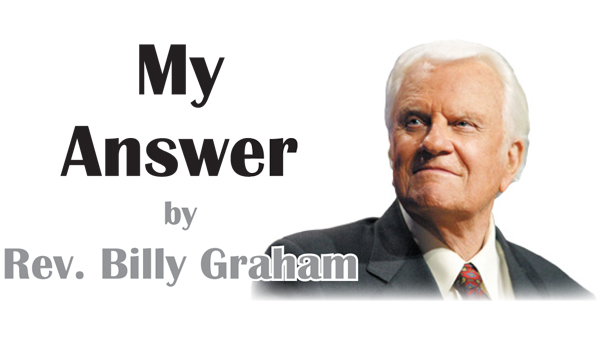We must lament our sins before we can rejoice in a Savior
Published 8:28 am Wednesday, July 24, 2024
|
Getting your Trinity Audio player ready...
|
From the writings of the Rev. Billy Graham
Dear Rev. Graham: Is it true that we only feel God’s strength when we admit our weakness? That really isn’t taught in church anymore, and I wonder if it’s because we as Christians have become more educated, or are we dismissing the most important part of the Gospel message – acknowledging our sin and asking for forgiveness? – G.S.
Dear G.S.: Before we can become wise, we must first realize that we’re foolish. Before we can receive power, we must first confess that we are powerless. We must lament our sins before we can rejoice in a Savior.
Mourning, in God’s sequence, always comes before exultation. Blessed are those who mourn their unworthiness, their helplessness, and their inadequacy. Isaiah, the mighty prophet of God, knew by experience that one must bow the knee in mourning before one can lift the voice in jubilation.
When Isiah’s sin appeared ugly and venomous in the bright light of God’s holiness, he said, “Woe is me, for I am undone! … For my eyes have seen the King” (Isaiah 6:5, NKJV).
We cannot be satisfied with our goodness after beholding the holiness of God. But our mourning over our unworthiness and sinfulness should be of short duration, for God has said, “I am He who blots out your transgressions for My own sake; and I will not remember your sins” (Isaiah 43:25, NKJV). Isaiah had to experience the mourning of inadequacy before he could realize the joy of forgiveness.
If we have no sense of sorrow for sin, how can we know the need of repentance? In God’s company, a person must go down into the valley of grief before scaling the heights of spiritual glory. One must become tired and weary of living without Christ before finding His fellowship. One must come to the end of “self” before truly living.
————
Trending
(This column is based on the words and writings of the late Rev. Billy Graham.)







